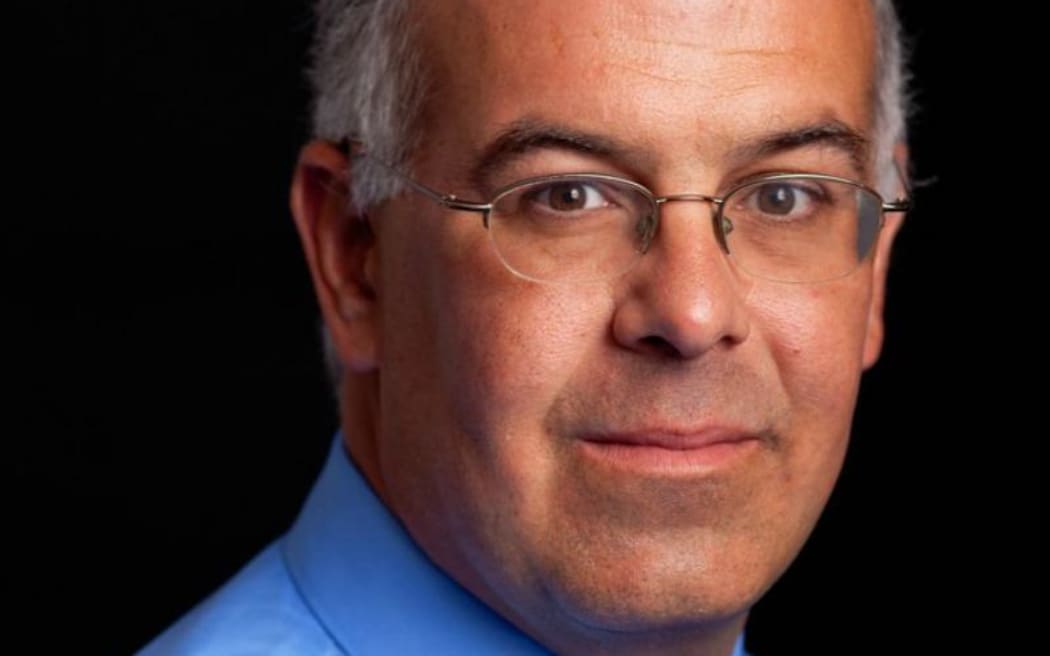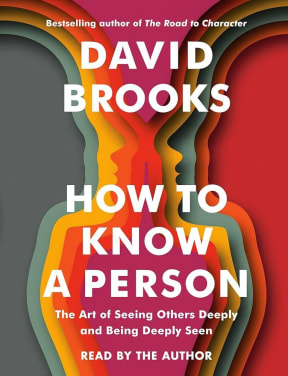Sociologist David Brooks used to think wisdom was the ability to utter life-changing maxims like Dumbledore or Yoda. Now he believes it's about deeply seeing someone else's experience.
"I think wisdom is just the ability to be tenderly receptive, to sit with someone, hear their story, see them in the noble struggle, and create an atmosphere of hospitality so they feel free to express themselves," he tells Jesse Mulligan.

Sociologist, writer and New York Times columnist David Brooks Photo: Supplied
Part of the reason that many people don't treat others with kindness and respect, Brooks argues, is that they aren't being taught how.
His new book How To Know a Person is a guide to developing skills to make others feel valued and understood.
"My hope is that as we get better at being considerate toward each other, we'll build trust. Our societies will be happier and our politics may be less vicious."
In the 21st century, many people don't receive the "character training" delivered to Westerners for millennia in churches, synagogues and mosques, Brooks says.
Until World War II, educational institutions played a role in this training, too – viewing their "main job" with each student as moral instruction - the development of self-control, purpose and social skills.
"Now many of our society's schools think that helping people prepare for a job is their main job or getting into some fancy university is their main job."
On social media, where "there's a judgement everywhere and understanding nowhere", people are often in performance mode and not really curious about others, Brooks says.
In-person, this absence will be felt if you're talking to what he calls a "diminisher".
"A diminisher is someone who stereotypes and ignores you, they don't make you feel seen. Often they're not curious about people. Sometimes I'll leave a party and I think 'that whole time nobody asked me a question'. I've come to think that only about 30 or 40 percent of people you meet are question-askers. The rest are perfectly nice but they're just not that curious."
Conversation with an "illuminator", on the other hand, makes people feel lit up.
"They're curious about you, they ask questions, they just can see the world a little from your point of view."

How to Know A Person by David Brooks Photo: Supplied
To first build trust in a conversation, Brooks recommends "starting small" by asking questions that encourage people to talk about their childhood, ethnicity or something they're proud of, like a sports team.
He then gets "a little more whimsical" with his questions, asking someone to share, for example, a "favourite unimportant thing" about themselves.
For one theologian colleague, this was watching lots of trashy reality TV. For Brooks, it's a preference for early Taylor Swift over later Taylor Swift (perhaps, he guesses, because of some enjoyment in mourning high school breakups).
To further build connection, as a conversation goes on, Brooks then asks "big questions", for example: "If this five years is a chapter in your life what's the chapter about? How does fear show up in your life? What would you do if you weren't afraid? What crossroads are you at? A lot of us are in the middle of a transition of some sort or another."
Wise people are not only curious about other people's stories, Brooks says, they also act as "story editors", helping the other person make their story more accurate and also view themselves as an author rather than a witness.
"When people are telling you about some episode in their life they don't go into enough detail. So if you say 'Well, where was your boss sitting when she said that?' suddenly they're like novelists. They're telling you the story of what happened in all its richness and you get a sense of who they are.
"Now when I'm asking people about politics I don't ask 'What do you believe?', I ask 'How did you come to believe that?' Suddenly they're telling me a story about some person who shaped their values or some experience that did."
David Brooks' top three conversational tips:
1. Be a loud listener
"I have a buddy and when I'm talking to him it's like talking to a Pentecostal church. He's like 'Yeah, preach that, preach that'. And I love talking to that guy."
2. Don't be a 'topper'
"It seems like I'm trying to relate but what I'm really trying to do is take the conversation away from you and onto me. I'm guilty of this all the time."
3. Find the disagreement under the disagreement
"Sometimes we'll be arguing about some political matter and it's interesting to ask, Well, why do we disagree? What philosophically. deep down, is causing us to see this so differently? And that way we stop fighting and we start exploring... what's the philosophical thing under our surface disagreement?
"Suddenly we're cooperating and trying to find what the core disagreement is. And that's A, more interesting and B, you learn a lot about yourself when you do that."

